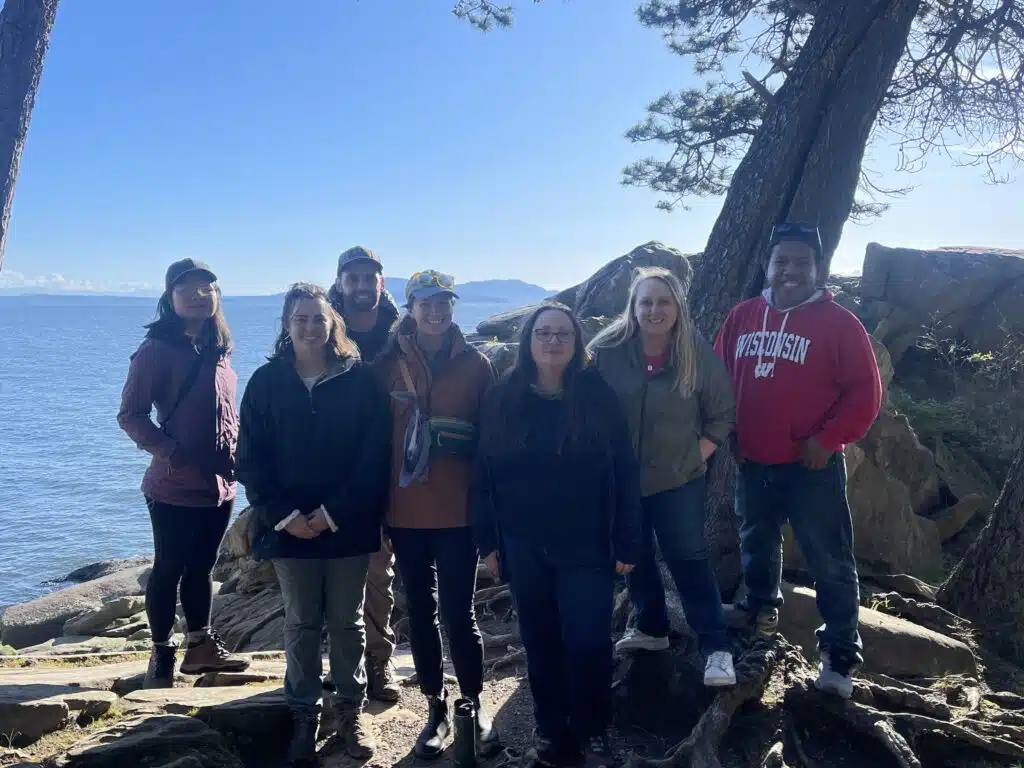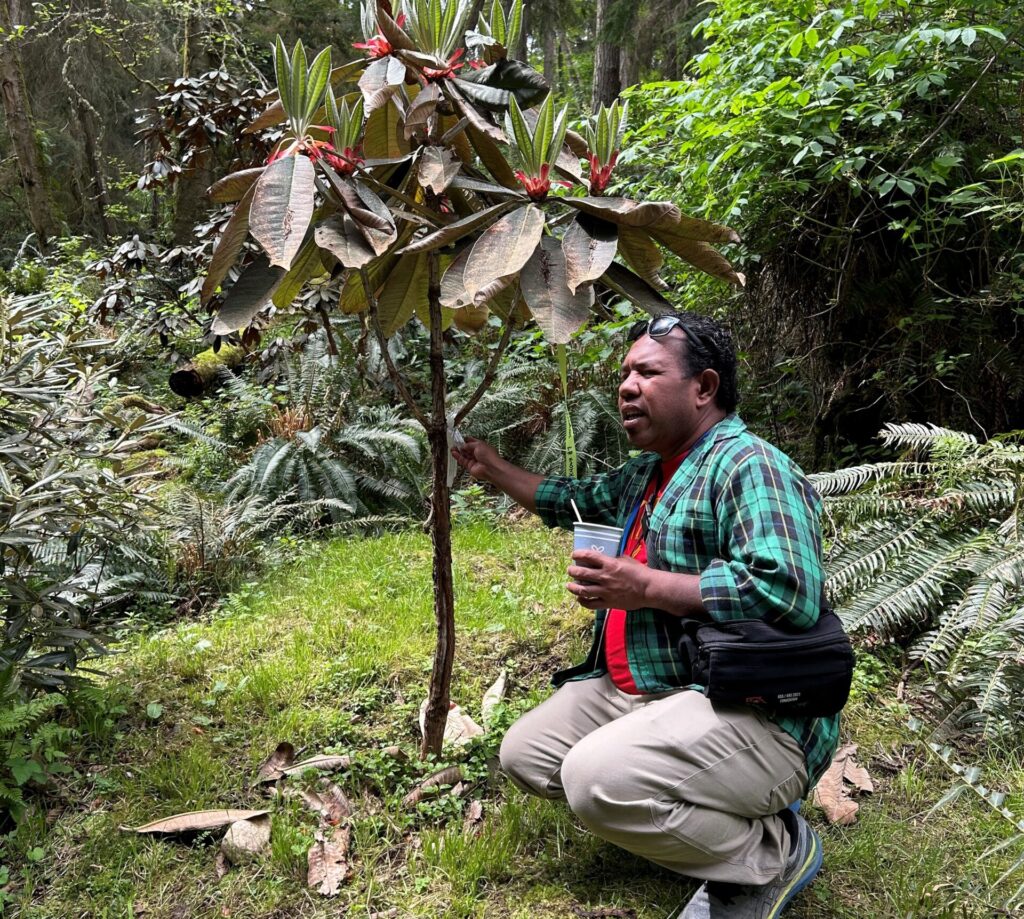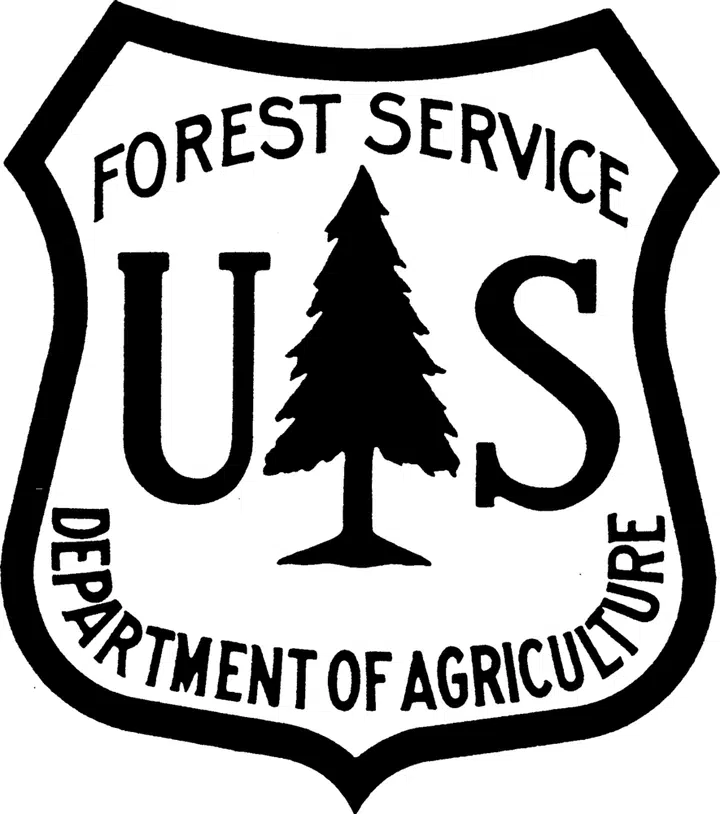
Members of the Medeiros Lab in the Holden research department organized an Early Career Researcher Mini-Conference and research poster session at the American Rhododendron Society Annual Convention which took place in Bellingham, Washington April 30-May 5, 2024. The Mini-conference was organized by Holden Scientist Dr. Juliana Medeiros and Holden graduate student Miranda Shetzer, along with help from Tara Spears, a graduate student at University of Pennsylvania.
This event was tailor made just for those starting out on their research careers, including graduate students and postdoctoral researchers, giving them space to discuss their research with fellow rhododendron scientists, to build research skills through workshops and discussions, and to make contacts for future career goals and projects. The Mini-conference included attendees from all over the US and Asia, with research topics including genomic evolution, taxonomy, pollinators, conservation and plant physiology.
There were also opportunities to learn about the ecology of the pacific northwest and the Rhododendron species found in the region, with a visit to Larabee state park located on Samish Bay to view the charismatic Chuckanut Sandstone formations (photo 1). The mini-conference culminated in a keynote talk by Dr. JM Hulbert of Forest Health Watch, who introduced concepts in Community-Based research tracking pests and diseases through the iNaturalist platform, and how Rhododendron researchers and enthusiasts can get involved.


Attendees at the American Rhododendron Society Annual Convention have a wide range of interests in Rhododendron including nursery industry professionals, gardeners, conservationists, and a fair number of folks who identify simply as nature lovers. This provided an opportunity for rhododendron researchers to learn about Rhododendron horticulture, and to share information about their work with members of the public at the poster session. The poster session included posters by early career researchers, as well as posters by Medeiros and other senior rhododendron researchers. Medeiros presented information about a recent publication on Rhododendron leaf anatomy, showing how variation in leaf anatomy may be similar among closely related species, but can also be impacted by different types of climates. This information is relevant for plant breeders who are interested in breeding plants for climate change, and for conservationists who need to identify the threats to species in order to conserve them.
The Annual Convention also featured garden tours, including a visit to the stunning Meerkerk Gardens on Whidbey Island, where Holden researcher Yasper Mambrasar spotted a plant labeled “species nova”, i.e., a species which hasn’t been given a scientific name yet. In addition, Medeiros gave a workshop about her research on Rhododendron plant water transport aimed at showing gardeners how plants use their water and why unique properties of the Rhododendron vascular system make them vulnerable to drought.
view leaf anatomy posterTogether, these two meetings provided young researchers working in Rhododendron with a broad view of Rhododendron in science and society, a chance to share their research findings, and the opportunity to tap into the deep knowledge base within horticulture. This is expected to improve research by connecting researchers to real-world problems, and to promote sustainability of research careers in Rhododendron by connecting early career researchers with new opportunities, reflecting Holden’s commitment to grow the future of Rhododendron research.
Funding for early career researcher participation was provided by The American Rhododendron Society, The Research Foundation of the American Rhododendron Society, and The Holden Arboretum.
Juliana S. Medeiros, PhD
Plant Biologist
My research focuses on plant anatomical and physiological acclimation and adaptations to the abiotic environment. I am interested in how phenotypic and genetic variation in plant form and function interact with variation in climate over space and time to drive ecological patterns and the evolution of plant diversity. Research in our lab focuses on Rhododendron as a model system for the evolution of climate adaptations, with a special focus on how physiological processes and biomass allocation coordinate to determine species traits like stress tolerance or fast growth. In addition to research, I supervise research trainees from undergraduate to postdoctoral level, conducting work in plant physiological and evolutionary ecology on a variety of woody plant species. I am also passionate about scientific outreach activities, including development of a hands on teaching kit “The Drip Races” which teaches about plant water transport as a key component of woody plant biodiversity and conducting seminars on non-academic career paths.













